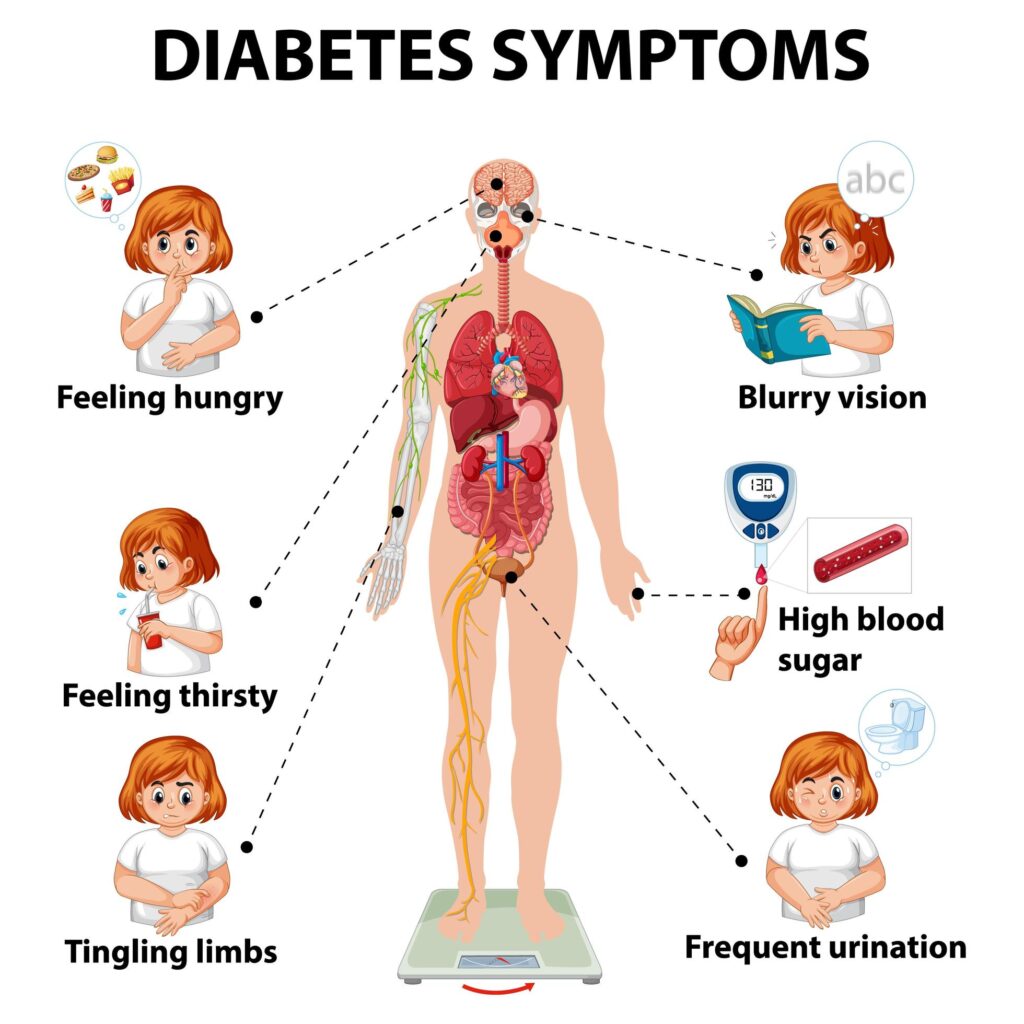
Simply put, diabetes is a condition where blood sugar levels are abnormally elevated.
So, what controls blood sugar levels? Several factors impact blood sugar, including diet, exercise, hormones, and neurotransmitters.
It’s easy to understand that consuming more calories than our body needs (through physical activity) will lead to elevated blood sugar levels. But which hormones and neurotransmitters affect blood sugar? It’s a balance between glycogenic hormones (which convert sugar to glycogen for storage) and glycogenolytic hormones (which convert glycogen to glucose for energy consumption).
The most important glycogenic hormone is insulin. It stores glucose as glycogen and prevents the catabolic breakdown of fats and proteins.
Key glycogenolytic hormones include cortisol, growth hormone, glucagon, and adrenaline. Chronically elevated levels of these hormones can lead to insulin resistance by persistently raising blood sugar levels. The most common risk factor for their release is excessive sympathetic activity due to stress. Thus, chronic stress, whether physical or mental, contributes to diabetes.
So, in addition to reduced insulin, elevated levels of glycogenolytic hormones can also lead to diabetes, and this is likely a contributing factor in type 2 diabetes.
“Apart from medication errors, decreased glycogen reserves and impaired glycogenolysis are also reasons that diabetic patients develop hypoglycemia in the later stages of their disease.”
